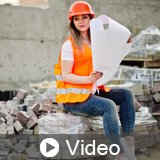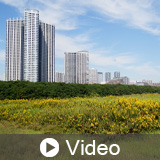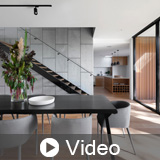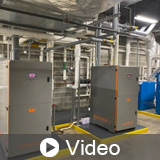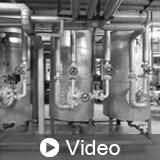The impending climate crisis casts a looming shadow over our planet, and the responsibility to avert catastrophe falls upon us all. Design professionals can wield their creative powers to conceive sustainable, resilient, and regenerative solutions before it's too late. Diverting construction waste from landfills and promoting recycling, reuse, and responsible disposal practices can significantly contribute to reducing carbon emissions.
GreenCE, Inc.
$39.00 |
|
In a world where climate change rages unchecked, the skies weep acid rain, monstrous storms destroy coastal cities, vibrant communities turn into desert wastelands, millions flee their homes, entire species go extinct, and ecosystems collapse. Renewable energy can play a vital role in addressing these challenges and mitigating the worst effects of climate change. In this course, we explore how renewable energy can help reduce carbon emissions for LEED v4.1 BD+C and ID+C projects and reduce environmental impacts.
$39.00 |
|
In this course, we describe how design professionals can achieve the LEED v4.1 BD+C Sensitive Land Protection credit and reduce environmental impacts for building sites. We review sensitive land areas including wildlife habitat, wetlands, prime farmland, floodplains, and water bodies.
$45.00 |
|
In this course, we explain how to achieve the LEED v4.1 BD+C and ID+C MR: Sourcing of Raw Materials credit and how to specify environmentally friendly building materials. We review FSC certification, recycled content, and how bio-based materials could change the future of construction.
$45.00 |
|
Ever wonder why that fluorescent-lit hallway gives you the creeps? Turns out, millions of people on the internet figured it out. When an anonymous internet post about endless yellow office spaces went viral, it accidentally created one of the largest public engagements with architectural psychology. This course explores how The Backrooms phenomenon introduced liminal space theory to the masses and what it means for creating better buildings.
$35.00 |
|
What do a 2,400-year-old philosopher and today’s toughest client meetings have in common? More than you think. In this course, you’ll discover how ancient Greek Cynic philosophy can help you defuse conflict, win over clients, and keep your sustainable design goals on track. Packed with real-world case studies and practical tools, this course shows architects, engineers, and contractors how to navigate high-stakes conversations about eco-friendly materials, resolve team tensions when budgets clash with sustainability, and build long-term client trust through radical honesty and clarity.
$35.00 |
|
Discover a radical new lens on design in this course on material vitalism—an approach that redefines materials not as passive stuff, but as active participants in shaping architecture. We'll explore how matter itself can tell stories, shape experiences, and even guide design choices, from the weathered warmth of timber to the self-organizing intelligence of natural systems. Blending philosophy, material science, and real-world examples, this course offers not just theory, but a practical, sustainable framework for thinking with materials.
$35.00 |
|
We're facing an unprecedented crisis of connection in our communities. While we've become more digitally linked than ever before, genuine human connection is becoming increasingly rare. As a design professional, you hold extraordinary power to address this crisis through the spaces you create. Your buildings don't just house activities; they shape the social patterns that determine whether communities thrive or struggle.
$35.00 |
|
Your brain is lying to you about sound. What you hear isn't what's actually there—it's a carefully constructed illusion your neural circuitry builds in milliseconds. Welcome to the hidden dimension of architecture. This course cracks open the secret world where neuroscience collides with building design. You'll discover why certain rooms make people anxious without knowing why. How a hospital corridor can accelerate healing—or slow it down. Why your open office design might be sabotaging productivity at the cellular level.
$45.00 |
|
There's a phantom haunting your LEED buildings. It sabotages productivity. Triggers stress. Tanks satisfaction scores. Yet it appears on no energy model, no daylighting analysis, no material specification. Sound—the forgotten dimension—is writing the soundtrack of failure in even your best projects. Discover how composer R. Murray Schafer unlocked the hidden science of acoustic ecology in the 1960s, and why his innovative framework is the missing key for many sustainable design projects.
$45.00 |
|
This podcast course provides a comprehensive exploration of sustainable design and carbon management in the built environment. Participants will learn to differentiate between operational and embodied carbon, utilizing various tools and metrics for carbon design measures. A key focus will be discussing how Environmental Product Declarations (EPDs) aid design professionals and building product manufacturers in achieving their sustainability goals.
FREE |
|
Welcome to an exciting journey through the revolutionary world of bio-based circular materials that are reshaping how we design and build. This course explores innovative construction materials derived from agricultural waste, fungi, and renewable plant sources that offer design professionals unprecedented opportunities to create environmentally responsible buildings.
$45.00 |
|
Imagine walking through a city where every crack in the sidewalk, every forgotten alleyway, and every hidden elevation tells a story more complex and fascinating than any guidebook could ever reveal. Welcome to the world of deep topography, an interdisciplinary methodology for understanding spatial environments through multi-sensory, phenomenological exploration of geographical landscapes. Discover how LEED v4.1 BD+C strategies prioritize pedestrian-friendly designs and green spaces, ensuring cities are functional, culturally rich, and environmentally sustainable.
$39.00 |
|
In this course, we explain how design professionals can achieve the LEED v4.1 BD+C Indoor Water Use Reduction Prerequisite. We discuss strategies to help reduce potable water use in buildings such as specifying WaterSense labeled products. In addition, our team discusses challenges regarding the nation’s water supply and the need to update water infrastructure.
$45.00 |
|
In this presentation, we explore the WELL Building Standard and how it can advance human health and well-being. WELL v2 is an evidence-based, technically robust, resilient rating system that can help design professionals create inspiring and healthy buildings. Our team discusses the ten concepts of WELL v2 and performance testing that can help improve occupant health. We examine WELL certified projects and their attributes that make them healthy buildings. This introductory course is aimed at design professionals who want a basic overview of the WELL Building Standard.
$35.00 |
|
The year is 1414. Europe teeters on the brink of collapse—cities drowning in their own filth, forests stripped bare, ancient wisdom crumbling into superstition. In a forgotten Swiss monastery, a Vatican spy named Poggio Bracciolini makes a discovery that will shake the foundations of civilization. Hidden beneath centuries of dust lies the ultimate treasure: a manual for architectural mastery, written by written by Marcus Vitruvius Pollio, a Roman engineer whose principles would change the world. But this is no ordinary manuscript.
$35.00 |
|
Ready to design spaces that transform communities? This course reveals how the world's most successful gathering places—from Parisian cafés to modern co-working hubs—create the social magic that turns strangers into neighbors and neighborhoods into thriving communities. You'll discover the hidden design principles behind spaces people can't resist visiting, master sustainable strategies that reduce operating costs while boosting occupant wellbeing and learn implementation tactics that ensure your third place projects actually serve their communities long-term.
$35.00 |
Intellihot
|
This course provides an in-depth exploration of integrating electric and gas sources to heat domestic hot water (DHW) systems, ensuring compliance with health, safety, welfare, and occupant comfort standards. Design professionals will investigate various theoretical hybrid DHW configurations and their implementation in commercial buildings, considering their impact on building occupants. The course will discuss the tradeoffs between heat pumps and high efficiency gas units in terms of cost, emissions, and their implications for occupant well-being.
FREE |
|
Eliminate the risk for Legionella and generate reliable hot water production with tankless water heaters! Join us for this one-hour course as we evaluate risks associated with Legionella and the health benefits of tankless water heaters. In this course, participants will investigate the standards aimed at eliminating Legionella risk from the water supply and the tankless hot water technologies that prevent such bacterial growth in domestic water systems.
FREE |
|
Bluetooth operable, modular construction without compromising the demand for reliable, continuous hot water. Join us for this one-hour course as we explore electric tankless water heaters engineered for commercial applications. In this course, participants will dive into the newest technologies of hot water production that showcase the notable achievements of electric tankless water heaters in creating a minimal footprint, establishing an ease of serviceability and offering simplicity in operation and installation.
FREE |

